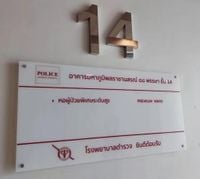Thai Airways is on the verge of exiting its rehabilitation plan, with plans to resume trading its shares on the Stock Exchange of Thailand (SET) by late July or early August 2025. Dr. Piyasvasti Amranand, the head of the rehabilitation plan, announced the progress during a press conference on May 18, 2025, highlighting the company's significant recovery.
According to Dr. Piyasvasti, the company has successfully completed its rehabilitation plan, as confirmed by the appointment of a new board of directors during the extraordinary shareholders’ meeting on April 18, 2025. The registration of the board changes with the Department of Business Development was completed on April 22, 2025. The Central Bankruptcy Court is set to hear the petition for the termination of the rehabilitation plan on June 4, 2025, at 9:00 AM.
"We expect the court's ruling will come in the second half of June, which will allow the rehabilitation management team to conclude their duties and transfer authority to the new board of directors," Dr. Piyasvasti explained. If the court approves the termination, Thai Airways will be able to resume trading its shares, marking a significant milestone for the airline.
For the first quarter of 2025, Thai Airways reported total revenues of 51.625 billion baht, a 12.3% increase compared to the same period last year. The airline's cabin factor stood at an impressive 83.3%, indicating strong demand for air travel. The earnings before interest, taxes, depreciation, and amortization (EBITDA) reached 12.728 billion baht, driven by increased passenger traffic and operational efficiency.
Passenger numbers surged to 4.33 million, representing an 11.6% increase from last year, with available seat kilometers (ASK) and revenue seat kilometers (RPK) rising by 21.1% and 20.8%, respectively. The net profit for the quarter soared to 9.839 billion baht, marking a staggering 306.1% increase from the previous year.
In a strategic move to enhance its fleet, Thai Airways plans to integrate two Airbus A321 Neo aircraft and one Boeing 789 into its operations, while decommissioning two older Boeing 777-200ER aircraft. This transition is part of the airline's larger strategy to modernize its fleet and improve operational efficiency.
Dr. Piyasvasti also addressed concerns from minority shareholders about the airline's past issues and emphasized the importance of the new board's role in ensuring that the airline does not revert to its previous problems. "The concern that Thai Airways will return to the same old problems is valid, but it is now the duty of the new board of directors to prevent this from happening," he stated.
Chai Eiamsiri, Chief Financial Officer of Thai Airways, expressed optimism about the company's future, stating that the shares are expected to return to trading by late July 2025. He noted that the company's financial performance during this period is among the best in its history, with a target revenue of 1.8-1.9 hundred billion baht and an aim to carry 16.5 million passengers this year.
Despite the positive outlook, Thai Airways faces challenges due to the ongoing conflict between India and Pakistan, which has affected flight routes. The airline has temporarily suspended flights to Pakistan and is closely monitoring the situation. The conflict has also led to longer flight durations for routes to Europe, as planes must avoid Pakistani airspace, increasing operational costs.
On the environmental front, Thai Airways is preparing to adopt sustainable aviation fuel (SAF) by 2026, which could slightly raise operational costs. However, the airline is confident that this transition will not significantly impact its overall financial performance.
In light of recent developments, the Tourism Authority of Thailand (TAT) is reportedly considering revising its target for international tourist arrivals in 2025, which may have implications for Thai Airways. However, Chai emphasized that the airline has already adapted its business strategy to mitigate potential impacts from fluctuations in international tourism.
Rangsiman Rome, a member of the Move Forward Party, has also voiced concerns regarding the government's influence over Thai Airways' rehabilitation process. He criticized government officials for allegedly prioritizing their interests over the airline's recovery, calling for accountability. "The issue of Class 14 is significant, and the government’s influence raises questions about the integrity of their decisions," he stated.
Overall, Thai Airways is navigating a complex landscape as it prepares to exit its rehabilitation phase and resume trading on the SET. With a focus on operational efficiency, fleet modernization, and addressing external challenges, the airline aims to secure a stable and prosperous future.

